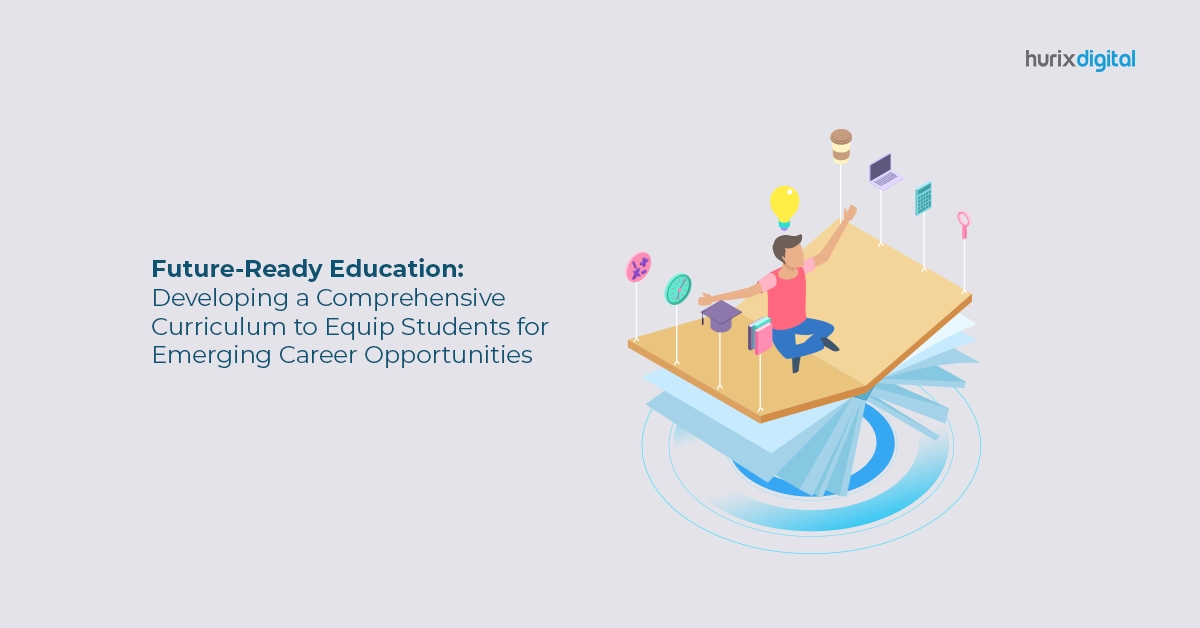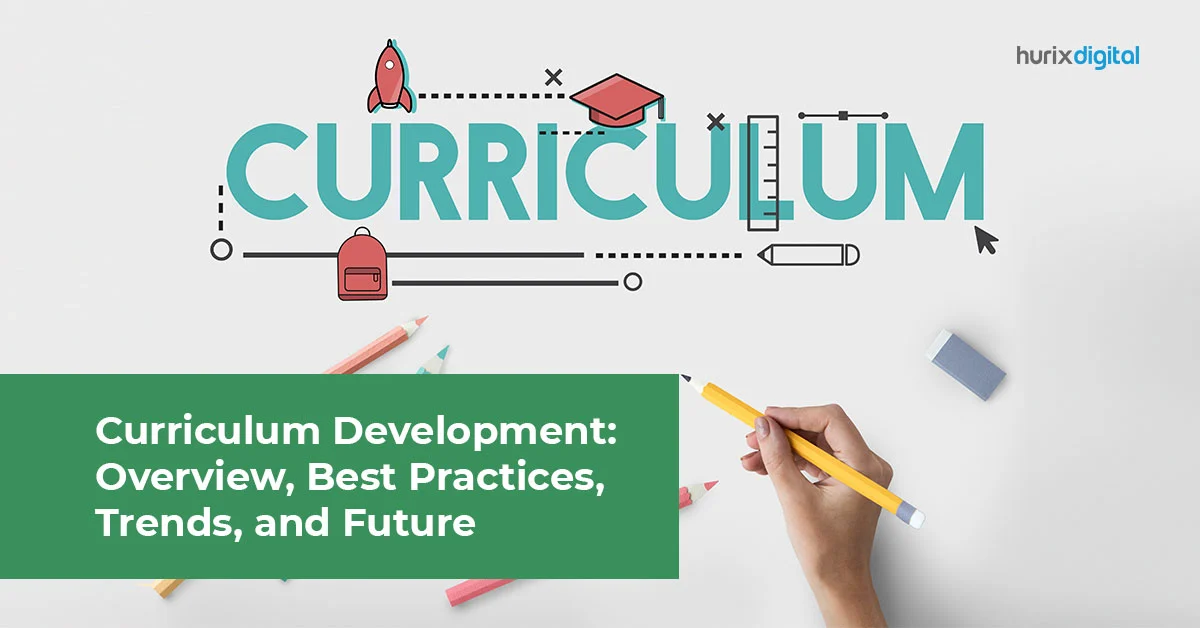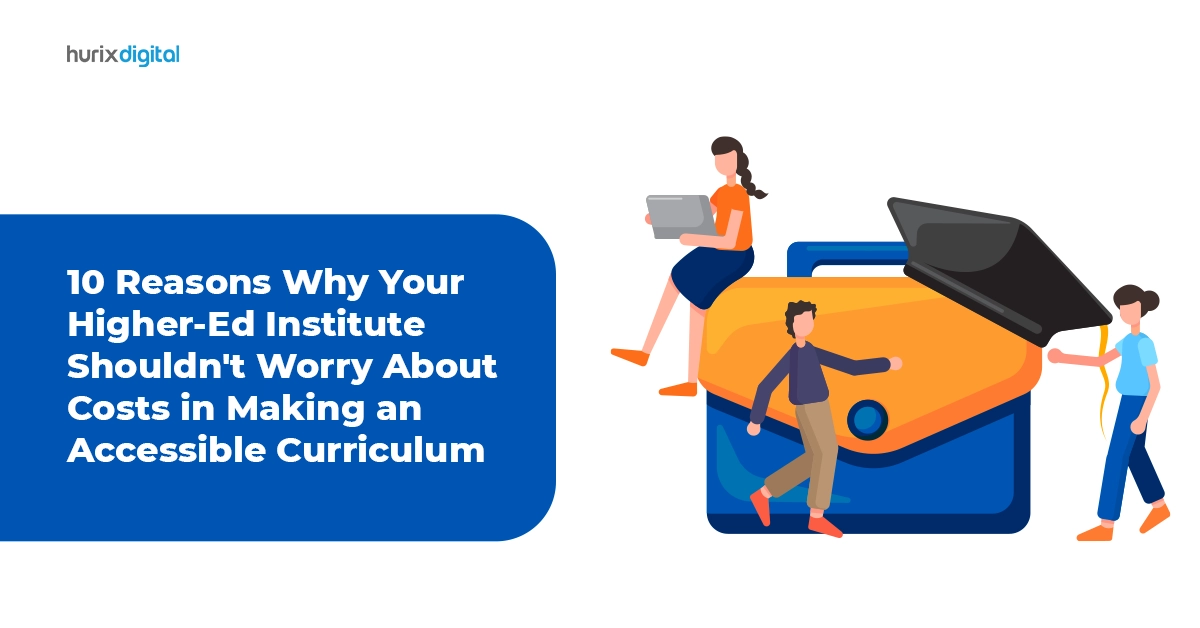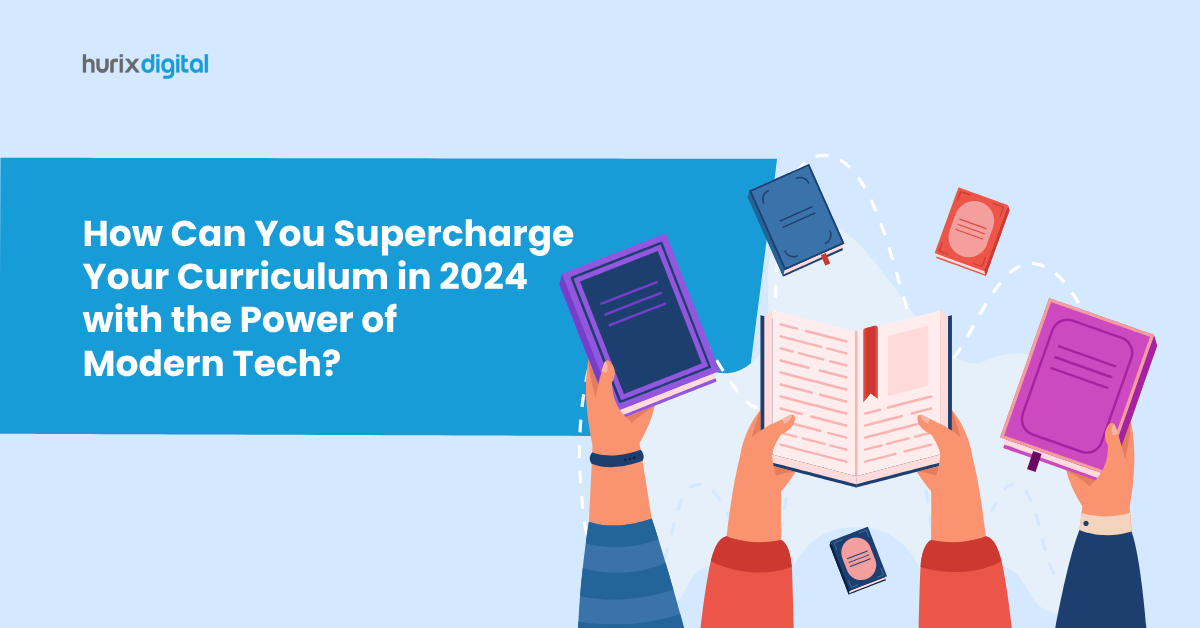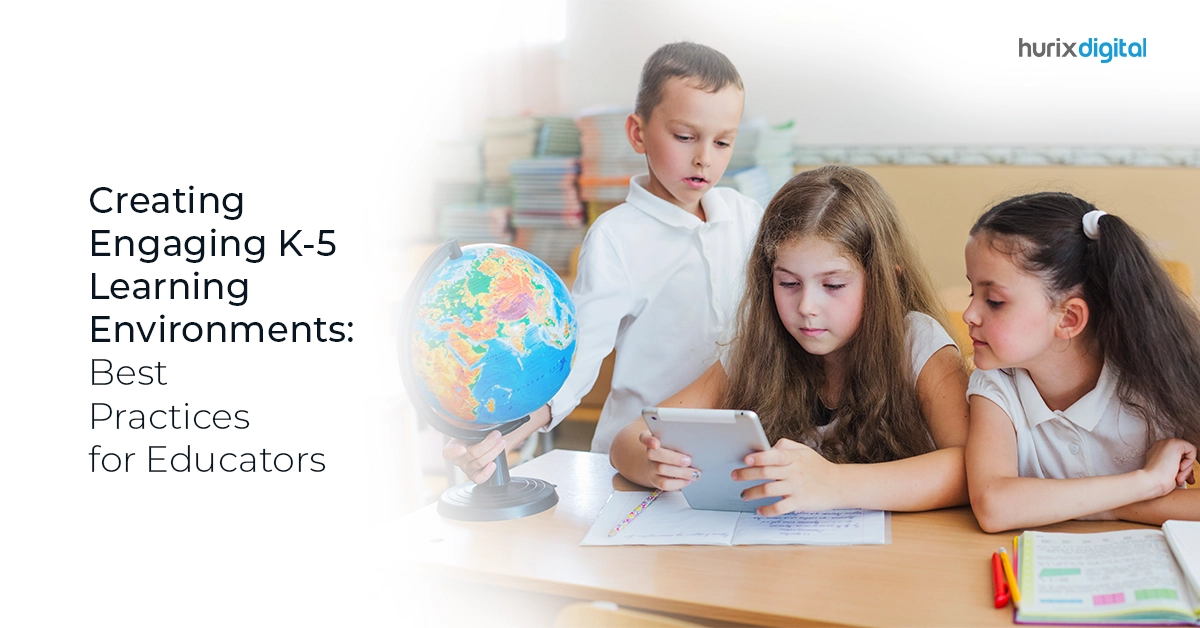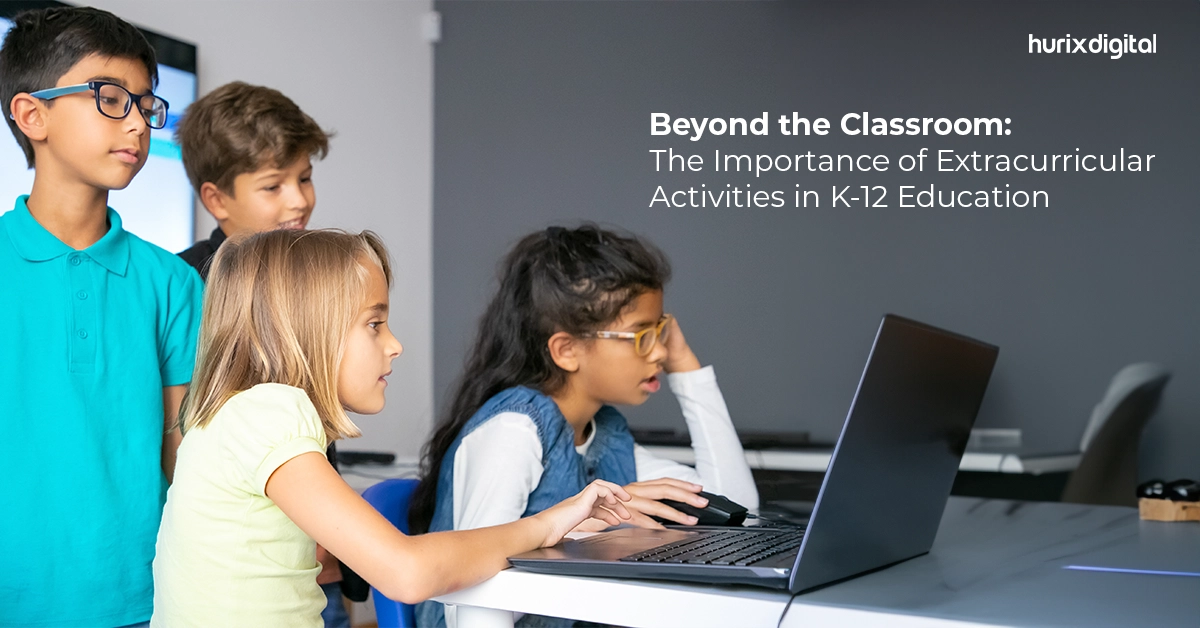Summary
This article aims to provide an overview of the key components of a future ready curriculum. It also highlights the importance of curriculum development and the best practices that can be used to develop curriculum models.
Today, technology is at the peak of innovation. With industries and job markets undergoing constant transformation at a rapid pace, our education system finds itself at a turning point. The traditional classroom model no longer suffices and is now facing the imperative to evolve with the changing times.
The world, now more than ever, needs education that goes over and beyond conventional textbooks. Creating and developing an integrated approach that can equip students with the skills and flexibility required for them to welcome and adapt to future career opportunities is of utmost significance. It is the essence of “Future-Ready Education” – where the development of a comprehensive curriculum takes center stage in shaping a generation capable of navigating the ever-evolving landscape of professions yet to come.
Gone are the days when career paths were straightforward and skills remained static. The labor market has become exceedingly diverse with the rise of automation, artificial intelligence, and the flexible economy. Today, we see most traditional job roles being replaced by positions that demand a blend of interdisciplinary skills, soft skills, and the ability to adapt in uncertain situations.
Hence, it is now highly important for educators to focus on designing and implementing a comprehensive curriculum – one that helps students gain the required skills and knowledge to survive and thrive in the ever-evolving professional world.
As we stand on the verge of the Fourth Industrial Revolution, it is evident that educational institutions must focus on curriculum integration by modernizing the K-12 curriculum that we know of. Let u explore it all in this blog.
Table of Contents:
- Designing a Future-Ready Curriculum
- Integrating Practical Experience for Real-World Preparedness
- Teacher Empowerment and Professional Development
- The Way Forward
Designing a Future-Ready Curriculum
A curriculum that’s prepared for the future goes beyond regular subjects and conventional education. It takes a much-needed holistic approach that encourages creativity, critical thinking, collaboration, adaptability, and technological skills. Keeping knowledge and learning at its core, for establishing a balanced curriculum that is future-ready, educational institutions must adapt, identify, and incorporate the best practices in curriculum development, along with nurturing key competencies that will empower students to succeed in life and the future job market.
Some key components constitute such a curriculum and can help educators to build effective curriculum development models.
1. Digital Literacy and Technological Competence
In an increasingly digital world, it has become an utmost need for students to be comfortable with technology and understand how to leverage it effectively. Technological literacy has no doubt become a fundamental skill. A future-ready curriculum along with an artificial intelligence curriculum can aim to provide students with a solid foundation in technology, coding, and data analytics, with an understanding of emerging technologies like robotics, the Internet of things, machine learning, and blockchain.
2. Critical Thinking and Problem Solving
Automation may take care of routine tasks, but complex problem-solving and critical-thinking abilities are still uniquely human. To ensure students gain skills that could prove to be invaluable in their future careers, analyzing situations, thinking creatively, and learning to approach problems from different perspectives are to be encouraged.
3. Communication and Collaboration
As work becomes more interconnected, with working styles becoming diverse, effective communication and collaboration will be crucial skills. To be able to keep up with the future work cultures, it is important that students learn to feel comfortable working in diverse teams, both in person and in virtual environments.
4. Entrepreneurial Mindset
The future job market is likely to see an increase in freelance work, startups, and independent entrepreneurship. Instilling an entrepreneurial mindset in students is the need of the hour. This will empower students to identify opportunities, take calculated risks, innovate, and approach challenges with determination, creativity, and resilience.
5. Adaptability and Upskilling
The careers of the future will demand flexibility, adaptability, and a positive growth mindset. Learning is a lifelong venture and endeavor. Hence, a future-ready curriculum should equip students with the right skills so that they can adapt, upskill, and reskill throughout their careers.
6. Cross-Disciplinary Learning
Traditional subjects no longer reflect the intricacies and diversity of modern careers. A forward-looking curriculum aims to integrate multiple concepts from numerous disciplines, that allow students to develop and cultivate broader perspectives and innovative problem-solving skills.
7. Soft Skills for Success
While technical skills have always been important, soft skills are equally critical for career development and overall success. Leadership, effective communication, collaboration, adaptability, empathy, teamwork, interpersonal skills, work ethic, and emotional intelligence are all valued traits that can set students apart in a constantly evolving job market.
8. Global Citizenship and Cultural Awareness
With the world becoming more interconnected, an appreciation for cultural diversity and inculcating a global perspective becomes extremely vital. A future-ready curriculum should strive to shape and foster open-mindedness, empathy, flexibility, and a respectful understanding of different cultures, values, and perspectives.
Integrating Practical Experience for Real-World Preparedness
A future-ready curriculum design should not rely solely on theoretical knowledge. Practical experience is key to translating the learned concepts into real-world applications.
This can be achieved through:
1. Internships and Apprenticeships
Collaborating with local industries can provide students with hands-on experience that help to bridge the gap between classroom learning and real-world work scenarios. Internships and partnerships enable students to gain firsthand experience and build valuable networks.
2. Experiential Learning
While curriculum planning, incorporating hands-on experiences, simulations, experiments, and real-world projects allows students to apply their knowledge and skills in multiple practical contexts. This will help build their critical problem-solving abilities further, along with honing their talents and improving social skills.
3. Industry Partnerships
Collaborating with industries can provide insights into the latest trends, challenges, and expectations. Building partnerships with industry leaders can offer insights into current industry trends and ensure that the curriculum remains relevant and aligned with market changes and demands.
4. Critical Thinking Initiatives
Students should be encouraged to question ideas and assumptions, analyze situations critically, and propose innovative solutions. This cultivates a mindset that is essential for adapting to changing career landscapes.
As we understand, continuous learning and upskilling are the need of the hour. The rapid pace of technological and scientific advancements means that learning doesn’t stop with just a degree. A comprehensive curriculum should lay the foundation for a lifelong learning mindset. This involves teaching students how to learn, adapt, and upskill throughout their careers. Online modules and courses, educational and extracurricular workshops, diplomas, and micro-credentialing can all play a role in this ongoing educational journey.
The more we move ahead into an uncertain future, ethical considerations also gain importance. A future-ready curriculum should inculcate and emphasize responsible technology use, ethical decision-making, and environmental sustainability. This prepares and enables students to address ethical issues and dilemmas and contribute positively to society.
Also Read: Role of Technology in Higher Education Curriculum Development
Teacher Empowerment and Professional Development
Creating a future-oriented curriculum requires educators who are themselves equipped with the necessary skills and knowledge. For an effective future-ready curriculum development process, educators need to be adept with curriculum planning and curriculum mapping. In addition to the curriculum being based on recognized educational standards, it needs to address core learning needs and be flexible enough to adapt to emerging technologies and trends.
Investing in teacher training and professional development programs is highly crucial. Teachers need to keep themselves up-to-date with the latest pedagogies and teaching methodologies, technological tools, current industry trends, and insights so that they can adapt and deliver. This will help enhance the quality and relevance of education and can empower educators to guide students on their educational journeys.
Also Read: 5 Lifelong Learning Methods for Students and Institutions in 2023
The Way Forward
Creating a good plan for education in the future is not something that can work for everyone in the same way. It needs everyone involved, like teachers, policymakers, experts from different jobs, and students too. A comprehensive curriculum that arms students with adaptable skills, a global outlook, and a desire for lifelong learning is like making an investment in them and in the world we all live in.
Careers of the future could be really exciting, but at the same time, they could be tricky, uncertain, and challenging to navigate. Being ready for the future is like having a special key that can unlock the cool parts and solve the tricky parts. To get this key, educational institutions should start by designing and implementing a comprehensive curriculum focusing on core competencies, technological adeptness, practical experiences, interdisciplinary learning, soft skills, and inculcating a commitment to life-long learning.
As the world keeps changing, the education system must also adapt and keep up with the times. By embracing and encouraging this change, we can help ensure that our future leaders, innovators, and problem solvers are creating and shaping their future, by successfully being able to navigate the ever-evolving landscape of future careers.
Hurix Digital, one of the world’s leading digital curriculum providers, has been working intensively on making future digital education more inclusive and accessible.
To learn more about our work and how we do it, contact us today.


